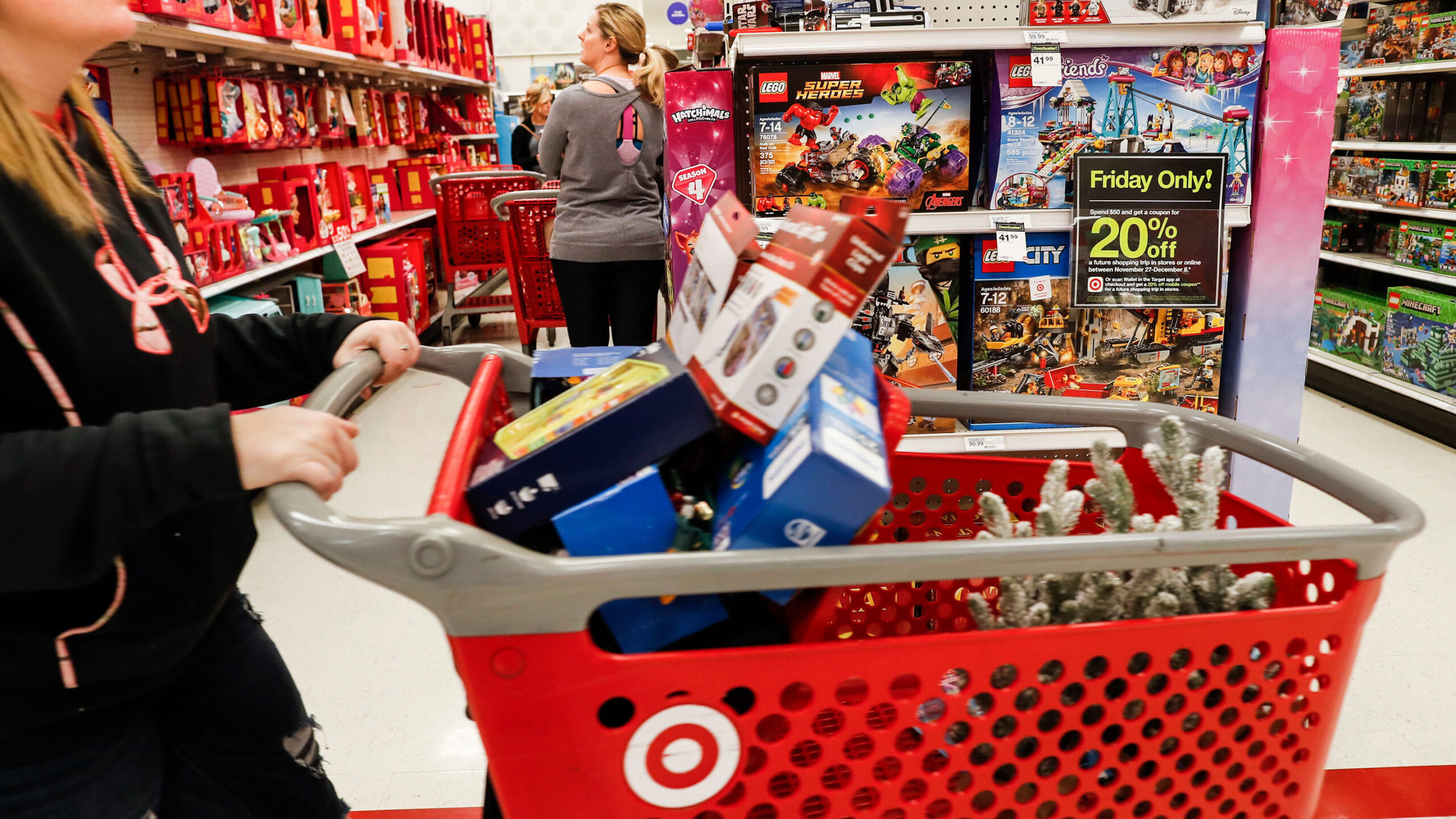Is Target Still the Worst Store to Shoplift From?

Dec 10 | 2025

Retail Stores Sales, Newport, USA - 23 Nov 2018 John Minchillo/AP/REX/Shutterstock
Updated: November 20th, 2025
Short answer: Yup — if you were hypothetically considering it. The longer answer: Yes – and here’s how it stacks up.
Back in 2025, the folks at Paypath declared Target the ultimate no-go for would-be shoplifters. Their argument: Target doesn’t just take loss prevention seriously, it basically owns it — with a forensic lab, cross-store tracking and a “let them steal until we build a big case” strategy.
Fast-forward to today and the verdict still holds plenty of weight. Here’s why:
Why Target remains at the top of the “avoid if you stole something” list
- Target’s leadership openly acknowledges theft and “shrink” (inventory loss) are major concerns. Their 2023 CEO update noted theft and organised retail crime “would cost [us] $500 million more this year.”
- They’ve shut down nine stores in four states because of persistent safety and theft issues.
- The original Paypath piece referenced Target’s accredited forensic lab and coordinated in-store and multi-state investigations of shoplifting rings.
Their systems are built to catch repeat offenders, track across locations and escalate when necessary.

Where other big-box stores rank on the “worst to steal from” ladder
Here’s a cheeky ranking of major chains from toughest to easiest (again, purely hypothetical and definitely not supplementing any real criminal advice).
- Target – Still #1: If you steal from here, you’re basically playing classic boss mode.
- Best Buy – Gets serious about theft prevention and claims “we haven’t had material shrink impact for two years” thanks to good staffing, layout, and tech.
- Walmart – The giant of general retail also contends with theft. The CEO has warned that store closures, not just small fixes, may come if theft isn’t contained.
- Home Depot / Other chains – Often subject to organised retail crime too, but tend to have more favourable layouts (large items, locked tools) that make simple theft less convenient.
So, is Target still the worst?
Yes — if by “worst” we mean most difficult for a shoplifter to get away with it. Target remains top tier in loss-prevention investment and build-out. The others may be catching up, but they’re not quite at Target’s level of coordination and public acknowledgement of the problem.
Originally Posted in 2021
Despite the fact that late-stage capitalism is an amoral hellhole driven by a borderline religious belief in the sanctity of brands, we would never, ever suggest that anyone should shoplift from big-box stores, or even imply that doing so is morally okay or a victimless crime.
But hypothetically, if we were to give any tidbit of advice to any would-be shoplifters (aside from the Golden Rule that you never, ever steal from mom-and-pop shops or individuals simply trying to eke out a living), it would be this: Avoid shoplifting from Target.
While loss prevention technology has certainly ramped up over the past decade, the truth is that the vast majority of one-off shoplifters don’t get caught. The majority of shoplifters who eventually get apprehended are “the clunky ones who get just good enough to evade detection for a while until they get too greedy and too braggy,” as Target manager Dan Holliday explains.
By nature, working as a loss prevention officer (LP) is one of the most dangerous retail-related jobs a person can have. Every customer apprehension poses the potential risk of the situation turning violent, which is why the vast majority of stores implement “No Touch” policies for their LPs, whereby LPs are not allowed to get physical with, and sometimes even not allowed to pursue, suspects. Moreover, even if an LP suspects a person of shoplifting, stopping a customer without solid proof can open the store up to a lawsuit (especially if the customer is innocent).
But unlike Walmart and Best Buy, whose loss prevention officers (LPs) barely get paid enough to care––let alone risk their safety––Target takes loss prevention very seriously. Target runs one of the country’s top-rated forensic laboratories, which specializes in solving “organized retail crimes committed at Target stores through video and image analysis, latent fingerprint, and computer forensics.”
 Retail Stores Sales, Newport, USA – 23 Nov 2018 John Minchillo/AP/REX/Shutterstock
Retail Stores Sales, Newport, USA – 23 Nov 2018 John Minchillo/AP/REX/Shutterstock
Scarier, though, is the methodical way in which Target goes about building cases against repeat shoplifters. In a 2016 Reddit post, a user named StiggyPop recounted his experience of being a drug addict who made money by stealing and flipping Blu-Rays from Target. After four months, he was apprehended by a team of high-level LPs who knew everything about him, from where his apartment was located to the specific store he used as a fence (a middleman for stolen goods who acts as a “fence” between thieves and unknowing buyers).
As it turns out, alongside their forensic team and top-of-the-line, in-store facial recognition technology, Target is known for actually letting shoplifters get away with their bounty…up until they reach the monetary threshold for a felony shoplifting charge. This means that while a Walmart LP will stop a shoplifter regardless of whether they’re stealing a $5 DVD or a $500-dollar TV, Target might allow a shoplifter to steal 100 $5 DVDs over time, all while building up a massive, fool-proof felony case against them. And here’s the craziest part––they organize these efforts across stores and even state lines. Essentially, if you steal at any Target, anywhere in the country, they’re quite possibly building up a case against you.
So if by chance you have the urge to shoplift, keep yourself safe and avoid Target at all costs. There are plenty of other big-box chains out there that don’t deserve your business.
- Target’s leadership openly acknowledges theft and “shrink” (inventory loss) are major concerns. Their 2023 CEO update noted theft and organised retail crime "would cost [us] $500 million more this year."
- They’ve shut down nine stores in four states because of persistent safety and theft issues.
- The original Paypath piece referenced Target’s accredited forensic lab and coordinated in-store and multi-state investigations of shoplifting rings.
Their systems are built to catch repeat offenders, track across locations and escalate when necessary.

Where other big-box stores rank on the “worst to steal from” ladder
Here’s a cheeky ranking of major chains from toughest to easiest (again, purely hypothetical and definitely not supplementing any real criminal advice).
- Target – Still #1: If you steal from here, you’re basically playing classic boss mode.
- Best Buy – Gets serious about theft prevention and claims “we haven’t had material shrink impact for two years” thanks to good staffing, layout, and tech.
- Walmart – The giant of general retail also contends with theft. The CEO has warned that store closures, not just small fixes, may come if theft isn’t contained.
- Home Depot / Other chains – Often subject to organised retail crime too, but tend to have more favourable layouts (large items, locked tools) that make simple theft less convenient.
So, is Target still the worst?
Yes — if by “worst” we mean most difficult for a shoplifter to get away with it. Target remains top tier in loss-prevention investment and build-out. The others may be catching up, but they’re not quite at Target’s level of coordination and public acknowledgement of the problem.
Originally Posted in 2021
Despite the fact that late-stage capitalism is an amoral hellhole driven by a borderline religious belief in the sanctity of brands, we would never, ever suggest that anyone should shoplift from big-box stores, or even imply that doing so is morally okay or a victimless crime.
But hypothetically, if we were to give any tidbit of advice to any would-be shoplifters (aside from the Golden Rule that you never, ever steal from mom-and-pop shops or individuals simply trying to eke out a living), it would be this: Avoid shoplifting from Target.
While loss prevention technology has certainly ramped up over the past decade, the truth is that the vast majority of one-off shoplifters don't get caught. The majority of shoplifters who eventually get apprehended are "the clunky ones who get just good enough to evade detection for a while until they get too greedy and too braggy," as Target manager Dan Holliday explains.
By nature, working as a loss prevention officer (LP) is one of the most dangerous retail-related jobs a person can have. Every customer apprehension poses the potential risk of the situation turning violent, which is why the vast majority of stores implement "No Touch" policies for their LPs, whereby LPs are not allowed to get physical with, and sometimes even not allowed to pursue, suspects. Moreover, even if an LP suspects a person of shoplifting, stopping a customer without solid proof can open the store up to a lawsuit (especially if the customer is innocent).
But unlike Walmart and Best Buy, whose loss prevention officers (LPs) barely get paid enough to care––let alone risk their safety––Target takes loss prevention very seriously. Target runs one of the country's top-rated forensic laboratories, which specializes in solving "organized retail crimes committed at Target stores through video and image analysis, latent fingerprint, and computer forensics."
 Retail Stores Sales, Newport, USA - 23 Nov 2018 John Minchillo/AP/REX/Shutterstock
Retail Stores Sales, Newport, USA - 23 Nov 2018 John Minchillo/AP/REX/Shutterstock
Scarier, though, is the methodical way in which Target goes about building cases against repeat shoplifters. In a 2016 Reddit post, a user named StiggyPop recounted his experience of being a drug addict who made money by stealing and flipping Blu-Rays from Target. After four months, he was apprehended by a team of high-level LPs who knew everything about him, from where his apartment was located to the specific store he used as a fence (a middleman for stolen goods who acts as a "fence" between thieves and unknowing buyers).
As it turns out, alongside their forensic team and top-of-the-line, in-store facial recognition technology, Target is known for actually letting shoplifters get away with their bounty...up until they reach the monetary threshold for a felony shoplifting charge. This means that while a Walmart LP will stop a shoplifter regardless of whether they're stealing a $5 DVD or a $500-dollar TV, Target might allow a shoplifter to steal 100 $5 DVDs over time, all while building up a massive, fool-proof felony case against them. And here's the craziest part––they organize these efforts across stores and even state lines. Essentially, if you steal at any Target, anywhere in the country, they're quite possibly building up a case against you.
So if by chance you have the urge to shoplift, keep yourself safe and avoid Target at all costs. There are plenty of other big-box chains out there that don't deserve your business.
"









